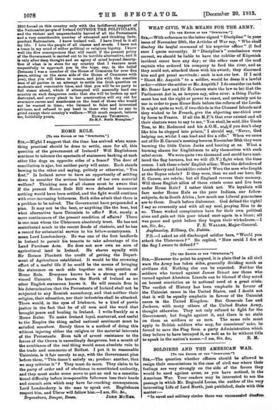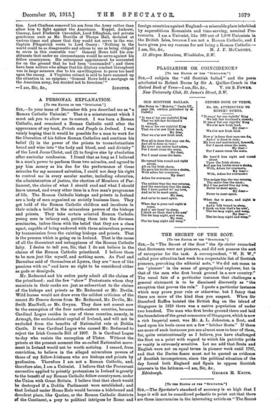SOLDIERS AND THE AMERICAN WAR.
[TO THE EDITOR OF THE "SPELT tTOE:9 SIR,—The question whether officers should be allowed to resign their commissions in the case of civil war where their feelings are very strongly on the side of the forces they would be used against arose, as you have noticed, in the American War. Your readers may be interested to see the passage in which Mr. Reginald Lucas, the author of the very interesting Life of Lord North, just published, deals with this matter :—
" In naval and military circles there was unconcealed disaffere tion. Lord Chatham removed his son from the Army rather than allow him to fight against the Americans. Keppel, Amherst, Conway, Lord Frederick Cavendish, Lord Effingham, and private gentlemen such as Mr. Bosville of Thorpe Hall, declared at various times and places that they would not serve in the war.
Captain Fitzpatrick wrote to Lord Ossory Nothing in the world could be so disagreeable and odious to me as being obliged to serve in this execrable war.' General Howe told his con- stituents that under no circumstances would he serve against his fellow countrymen. His subsequent appointment he accounted for on the ground that he had been commanded '; and there have been writers who allege that his dilatory conduct throughout was in largo measure due to his unwillingness to press too hard upon the enemy. A Virginian colonel is said to have summed up the situation in an epigram: 'General Howe held a mortgage on the American army, but decided not to foreclose.' "











































 Previous page
Previous page